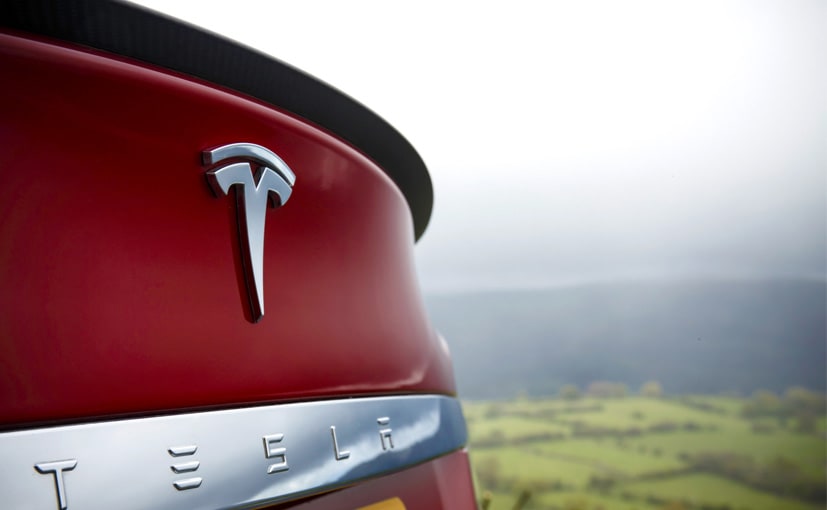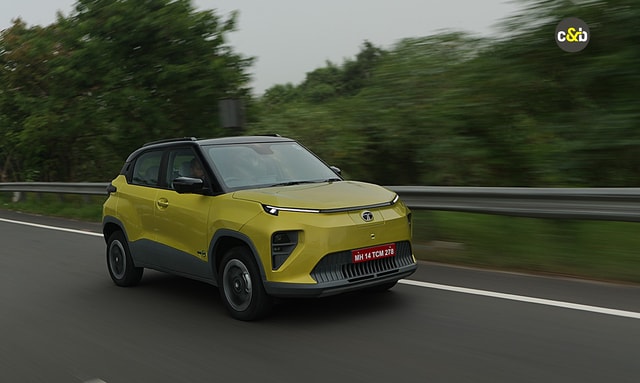This Is Why Elon Musk Is Buying SolarCity

- Tesla offered to buy out SolarCity for a deal worth $2.8 billion
- Musk is describing the deal with words such as "obvious"
- Tesla's stock plunged by more than 10 percent after the news came out
Trust Elon Musk to bowl people over with a wild idea when they're least expecting it.
The entrepreneur announced Tuesday that his electric vehicle company, Tesla, is offering to buy out SolarCity, one of the nation's biggest names in solar energy, for an all-stock deal worth $2.8 billion.
Musk is describing the deal with words such as "obvious," "no-brainer" and "incredibly compelling," while many financial analysts and investors are puzzled if not outright alarmed. Tesla's stock plunged by more than 10 percent after the news came out, while SolarCity's rose by about 15 percent.
Confused? Here's a quick rundown of what's going on.
What is SolarCity?
SolarCity is a major installer of solar panels. The technology can help consumers and businesses save money on their energy bills by converting the sun's energy into electricity. The company, which was founded in 2006 by two brothers who happen to be related to Elon Musk, accounts for more than a third of all solar-power generation systems that have been installed in U.S. homes. Musk himself is the chairman of SolarCity.
Why did Tesla offer to buy SolarCity?
Musk is trying to create a massive, clean-tech behemoth. On a conference call Tuesday, he said he wants Tesla stores basically to be a one-stop shop for electric cars, solar panels and home batteries.
Does this make sense?
To a certain extent. SolarCity could save on sales and marketing costs, and possibly gain access to new customers, if it had Tesla's help. Some analysts say SolarCity burns a lot of its money on customer acquisition; if those costs could come down, it'd be a big benefit to SolarCity's business.
Under Tesla's control, SolarCity also could adapt more quickly to emerging trends. One of the cool things about having a solar panel or two on your house is that, depending on where you live, you can sell any excess power you don't use back to the utility. That puts a bit of cash back in your pocket. Although dozens of states have such programs, that's beginning to change as some states, such as Nevada and Michigan, have taken steps to roll back some of these programs.
While this spells potentially bad news for companies that purely focus on generating electricity with solar panels, it's potentially good news for companies that can sell linked systems that consist of both solar panels and home batteries. That way, consumers still get to store any excess energy they produce, even if they can't sell it back to the grid.
Combining SolarCity's solar panels with the Tesla Powerwall home battery system appears to be precisely what Musk has in mind. And now imagine going a step further, using this solar-electric system to power the high-speed charger in your garage that keeps your Tesla topped up with juice. With the much-anticipated Model 3 entering production next year, you can bet that Tesla will be selling this bundle hard to consumers.
Okay. So why are some investors freaking out?
Well, some say there's no need for Tesla to buy SolarCity to gain all these advantages, particularly when both companies are struggling financially. SolarCity is in worse shape; its stock has fallen 60 percent from the beginning of the year, and a single share of Tesla is worth about 10 times more. Meanwhile, as the cost of solar panels keeps falling, SolarCity may have trouble keeping pace with those changes and its business model may not be sustainable, said Sam Abuelsamid, senior research analyst at the market research firm Navigant.
"Given the close relationships between the two companies anyway, there's no reason they couldn't do the same kind of thing and bring SolarCity sales into the [Tesla] stores without buying the company," Abuelsamid said. "It wouldn't be the first time companies have had a partnership like that."
Are there other challenges ahead?
Musk is known for promising big outcomes - and then grappling with delays or setbacks that keep him from meeting his stated targets. It's possible that Musk could face bigger difficulties than expected merging two firms with different corporate cultures.
Other companies clearly have similar ideas as Musk; on Tuesday, BMW announced that it would start selling a home battery pack of its own.
In light of those moves, Tesla's bid for SolarCity may be as much about gaining an early edge on would-be rivals, outmaneuvering them in what's going to be a highly competitive industry, than perhaps anything else.
© 2016 The Washington Post
(This story has not been edited by NDTV staff and is auto-generated from a syndicated feed.)
Latest News
 car&bike Team | Mar 3, 2026Ducati Desmo450 MX Teased Ahead of India LaunchThe Ducati Desmo450 MX is expected to be launched in India soon, as early as sometime later in March 2026.3 mins read
car&bike Team | Mar 3, 2026Ducati Desmo450 MX Teased Ahead of India LaunchThe Ducati Desmo450 MX is expected to be launched in India soon, as early as sometime later in March 2026.3 mins read car&bike Team | Mar 3, 2026Is this the Vida VXZ Electric Motorcycle?A test mule of an almost production-ready electric motorcycle has led to speculation that it could be the upcoming Vida VXZ electric motorcycle.2 mins read
car&bike Team | Mar 3, 2026Is this the Vida VXZ Electric Motorcycle?A test mule of an almost production-ready electric motorcycle has led to speculation that it could be the upcoming Vida VXZ electric motorcycle.2 mins read Shams Raza Naqvi | Mar 3, 2026Vinfast Unveils Two New Ultra Luxury Models, Restructures Brand LinesThe Vietnamese car company has announced that its vehicles will fall in three brand lines with Lac Hong being the luxury brand.1 min read
Shams Raza Naqvi | Mar 3, 2026Vinfast Unveils Two New Ultra Luxury Models, Restructures Brand LinesThe Vietnamese car company has announced that its vehicles will fall in three brand lines with Lac Hong being the luxury brand.1 min read car&bike Team | Mar 3, 2026Raptee.HV T30 Electric Motorcycle Deliveries BeginThe Chennai-based start-up Raptee.HV has begun large-scale customer deliveries of the brand’s first electric motorcycle – the Raptee T30.1 min read
car&bike Team | Mar 3, 2026Raptee.HV T30 Electric Motorcycle Deliveries BeginThe Chennai-based start-up Raptee.HV has begun large-scale customer deliveries of the brand’s first electric motorcycle – the Raptee T30.1 min read Shams Raza Naqvi | Mar 3, 2026From Vitara Brezza To Brezza: Maruti’s Subcompact SUV Completes A Decade In The MarketThe SUV has seen a major switch from being just a Diesel model to being just a Petrol in the last few years.2 mins read
Shams Raza Naqvi | Mar 3, 2026From Vitara Brezza To Brezza: Maruti’s Subcompact SUV Completes A Decade In The MarketThe SUV has seen a major switch from being just a Diesel model to being just a Petrol in the last few years.2 mins read car&bike Team | Mar 2, 2026Yezdi Roadster Red Wolf Launched at Rs 2.10 LakhYezdi has expanded the Roadster line-up with a new Red Wolf colourway, now the most premium shade in the range.1 min read
car&bike Team | Mar 2, 2026Yezdi Roadster Red Wolf Launched at Rs 2.10 LakhYezdi has expanded the Roadster line-up with a new Red Wolf colourway, now the most premium shade in the range.1 min read
 Bilal Firfiray | Feb 28, 2026Tata Punch EV Facelift Review: More Range, More Sense, Less MoneyThe Tata Punch EV facelift gets a bigger 40 kWh battery, faster 60 kW DC charging, improved thermal management, and better real-world range, and all of that at a lower introductory price. But does it become a more complete package now?6 mins read
Bilal Firfiray | Feb 28, 2026Tata Punch EV Facelift Review: More Range, More Sense, Less MoneyThe Tata Punch EV facelift gets a bigger 40 kWh battery, faster 60 kW DC charging, improved thermal management, and better real-world range, and all of that at a lower introductory price. But does it become a more complete package now?6 mins read Preetam Bora | Feb 24, 2026Hero Destini 110 Review: Simplicity, RefinedThe Hero Destini 110 is a no-nonsense commuter that is simple, comfortable and above all, fuel efficient. In 2026, when buyers are spoilt for choice, is it good enough to consider?1 min read
Preetam Bora | Feb 24, 2026Hero Destini 110 Review: Simplicity, RefinedThe Hero Destini 110 is a no-nonsense commuter that is simple, comfortable and above all, fuel efficient. In 2026, when buyers are spoilt for choice, is it good enough to consider?1 min read Preetam Bora | Feb 23, 2026TVS Apache RTX Road Test Review: Redefining the Entry-Level ADVAfter spending some time with the TVS Apache RTX in traffic, the daily commute, as well as on open highways, one thing becomes clear: the RTX is trying to redefine the entry-level ADV segment. But is it without fault?1 min read
Preetam Bora | Feb 23, 2026TVS Apache RTX Road Test Review: Redefining the Entry-Level ADVAfter spending some time with the TVS Apache RTX in traffic, the daily commute, as well as on open highways, one thing becomes clear: the RTX is trying to redefine the entry-level ADV segment. But is it without fault?1 min read Girish Karkera | Feb 20, 2026Road Test: 2025 VinFast VF7 AWD Sky InfinityFlagship all-electric SUV from the Vietnamese car maker gets most of the basics right.1 min read
Girish Karkera | Feb 20, 2026Road Test: 2025 VinFast VF7 AWD Sky InfinityFlagship all-electric SUV from the Vietnamese car maker gets most of the basics right.1 min read Jaiveer Mehra | Feb 18, 2026New BMW X3 30 Vs Mercedes-Benz GLC 300: Midsize Luxury SUV FaceoffWith the new X3 30, BMW has a direct competitor to the petrol GLC 300, but which is the luxury SUV for you?1 min read
Jaiveer Mehra | Feb 18, 2026New BMW X3 30 Vs Mercedes-Benz GLC 300: Midsize Luxury SUV FaceoffWith the new X3 30, BMW has a direct competitor to the petrol GLC 300, but which is the luxury SUV for you?1 min read
























































































































